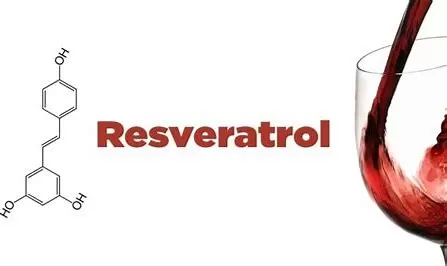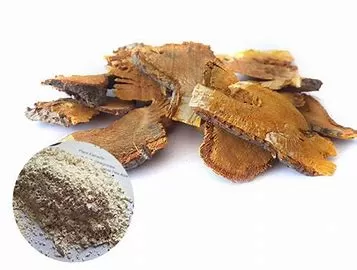- 0086-571-85302990
- sales@greenskybio.com
Is It Okay to Take Resveratrol Every Day?
2025-03-18
Resveratrol, a natural compound found in foods like red grapes, blueberries, peanuts, and dark chocolate, has gained considerable attention in the health and wellness community over the years. Known for its antioxidant and anti-inflammatory properties, resveratrol is often associated with benefits such as improved heart health, enhanced cognitive function, and even anti-aging effects. Many people now take resveratrol supplements regularly to augment their health and well-being. But this begs the question: Is it safe and effective to take resveratrol every day? In this detailed exploration, we delve into the science behind resveratrol, its advantages, potential risks, and expert recommendations for daily consumption.
What Is Resveratrol?
Resveratrol is a type of polyphenol, specifically a stilbenoid, found naturally in certain plants. It is produced by these plants as a defense mechanism against pathogens such as bacteria and fungi. While resveratrol exists in various foods, it is most famously present in the skin of red grapes, which explains why red wine has been historically linked to better heart health — an idea coined as the "French Paradox." The compound is also available as a dietary supplement, often in higher concentrations than what is found in food sources alone.
The Benefits of Taking Resveratrol
Research into resveratrol has uncovered an impressive range of potential health benefits. Daily supplementation may provide several advantages across different bodily systems, with some benefits being cumulative over time. Let’s explore some of these benefits in detail:
1. Heart Health
One of the most well-documented benefits of resveratrol is its positive impact on cardiovascular health. Resveratrol supports optimal heart function by improving blood flow, reducing oxidative stress, and promoting healthy cholesterol levels. It has been found to inhibit the oxidation of low-density lipoprotein (LDL) cholesterol, which is a major contributor to plaque formation in arteries. Additionally, resveratrol may increase nitric oxide production, helping relax blood vessels and lowering blood pressure. Regular intake could provide long-term protection against heart disease.
2. Antioxidant Properties
Resveratrol is a potent antioxidant, meaning it helps combat oxidative stress in the body. Oxidative stress is caused by free radicals that damage cells and contribute to aging and chronic diseases like cancer and diabetes. By neutralizing free radicals, resveratrol can potentially slow down the aging process at a cellular level and reduce inflammation throughout the body.
3. Cognitive and Neurological Benefits
Resveratrol has shown promise in protecting brain function and supporting cognitive health as people age. Its anti-inflammatory and antioxidant properties may help guard against neurodegenerative disorders like Alzheimer’s disease and Parkinson’s. Moreover, resveratrol may improve memory and learning ability by enhancing blood flow to the brain and reducing the risk of neurological damage. Regular supplementation may promote long-term brain health.
4. Anti-Aging Effects
Given its ability to protect cells from oxidative stress and inflammation, resveratrol is often marketed as a compound with anti-aging properties. Some studies suggest that resveratrol activates a group of proteins called sirtuins, which are involved in cellular repair and longevity. While more research is needed, daily resveratrol supplementation may slow down age-related cellular damage, promoting healthier skin and overall vitality.
5. Blood Sugar Regulation
Resveratrol has been shown to benefit individuals with type 2 diabetes by improving insulin sensitivity and reducing fasting blood sugar levels. It may also protect against complications related to diabetes, such as oxidative damage to the kidneys and blood vessels. Those with blood sugar concerns could benefit from regular intake.
6. Weight Management
Emerging research suggests that resveratrol may enhance metabolism and support weight management efforts. It appears to counteract the negative effects of a high-fat diet in some studies, potentially preventing obesity-related inflammation and improving fat metabolism. While supplementation alone cannot replace a balanced diet and exercise, resveratrol may support overall health when combined with a healthy lifestyle.
Is It Safe to Take Resveratrol Every Day?
Safety is a critical consideration for any supplement, and resveratrol is no exception. The answer to whether it is safe to take resveratrol daily depends on various factors, including age, health status, dosage, and individual tolerance. Below, we discuss safety guidelines.
1. Recommended Dosage
The daily dosage of resveratrol supplements can range from a few milligrams to grams, depending on the formulation and purpose. Clinical studies often use doses between 100 and 500 milligrams per day, which appear to be safe for most healthy individuals over long periods. However, higher doses (above 1,000 milligrams daily) may pose risks, including gastrointestinal discomfort, headaches, or interaction with medications. It is always best to start with a lower dose and gradually increase if necessary, under the guidance of a healthcare professional.
2. Potential Side Effects
In general, resveratrol is considered safe when taken in moderate doses. Common side effects, if any, tend to be mild and may include:
- Digestive discomfort (such as diarrhea or bloating)
- Headaches
- Allergic reactions (rare)
Individuals taking higher doses may experience more pronounced side effects, including fatigue or nausea. It is essential to stick to recommended dosages to minimize adverse effects.
3. Drug Interactions
Resveratrol may interact with medications, especially blood-thinning drugs (like aspirin or warfarin) or medications that affect hormone levels. Because resveratrol itself has mild blood-thinning effects, combining it with similar medications could elevate the risk of excessive bleeding. If you are on any prescription medications, consult your doctor before incorporating resveratrol into your daily routine.
4. Long-Term Use
Limited long-term studies have been conducted, but resveratrol appears to be safe for extended daily use when taken in recommended doses. Ongoing monitoring and discussion with your healthcare provider can help prevent potential complications over time.
Who Should Avoid Taking Resveratrol Daily?
While resveratrol supplements may offer significant health benefits, there are specific groups who should exercise caution or avoid daily use entirely. These include:
- Pregnant or Breastfeeding Women: Since there is minimal research on the effects of resveratrol on pregnant and breastfeeding women, it is generally recommended to avoid supplementation during these periods.
- People with Hormone-Sensitive Conditions: Resveratrol may influence estrogen levels, so individuals with hormone-sensitive conditions (such as breast or uterine cancer) should consult their doctor before using this supplement.
- People on Blood-Thinning Medications: Those taking anticoagulants should avoid resveratrol or use it under strict medical supervision.
How to Maximize the Benefits of Resveratrol
To maximize the benefits of daily resveratrol supplementation safely and effectively, consider the following guidelines:
1. Choose Quality Supplements: Look for reputable brands that provide transparent ingredient lists and third-party testing to ensure purity and potency.
2. Combine with a Balanced Diet: Resveratrol works best when part of a healthy diet rich in fruits, vegetables, whole grains, and lean protein. Nutrient synergy can amplify its effects.
3. Adopt a Healthy Lifestyle: Pair supplementation with regular exercise, sufficient hydration, and stress management techniques for optimal health. No supplement can replace a well-rounded lifestyle.
4. Follow Medical Advice: Always consult a healthcare provider if you have underlying health conditions, are pregnant or breastfeeding, or are taking medications before using resveratrol.
Conclusion
Resveratrol is a promising supplement with a wide range of potential health benefits, including cardiovascular support, cognitive protection, anti-aging effects, and blood sugar regulation. For most healthy individuals, taking resveratrol daily in recommended doses is safe and may contribute to long-term well-being. However, as with any supplement, resveratrol is not without risks, especially at higher doses or for certain populations. To ensure safe and effective use, consult a qualified healthcare provider, purchase high-quality supplements, and incorporate resveratrol into a comprehensive approach to health. When taken responsibly, resveratrol may be a valuable addition to your daily wellness routine, helping you unlock its full potential for improving and maintaining good health.
- ▶ Hesperidin
- ▶ citrus bioflavonoids
- ▶ plant extract
- ▶ lycopene
- ▶ Diosmin
- ▶ Grape seed extract
- ▶ Sea buckthorn Juice Powder
- ▶ Beetroot powder
- ▶ Hops Extract
- ▶ Artichoke Extract
- ▶ Reishi mushroom extract
- ▶ Astaxanthin
- ▶ Green Tea Extract
- ▶ Curcumin Extract
- ▶ Horse Chestnut Extract
- ▶ Other Problems
- ▶ Boswellia Serrata Extract
- ▶ Resveratrol Extract
- ▶ Marigold Extract
- ▶ Grape Leaf Extract
- ▶ blog3
- ▶ blog4
- ▶ blog5
-
What fruit is highest in resveratrol?
2025-03-18
-
Is resveratrol safe for kidneys?
2025-03-18
-
What is resveratrol used for in skin?
2025-03-18
-
What Are the Sources of Resveratrol?
2025-03-18
-
What Is Resveratrol Extract Good For?
2025-03-18
-
Europen Bilberry Extract
2025-03-18
-
Grapefruit Seed Extract Powder
2025-03-18
-
Cassia Seed Extract
2025-03-18
-
Longan Extract
2025-03-18
-
Fig Extract
2025-03-18
-
Hawthorn Extract
2025-03-18
-
Acerola Extract
2025-03-18
-
Okra Extract
2025-03-18
-
Cat Claw Extract
2025-03-18
-
Hedyotis Diffusa Extract
2025-03-18


























